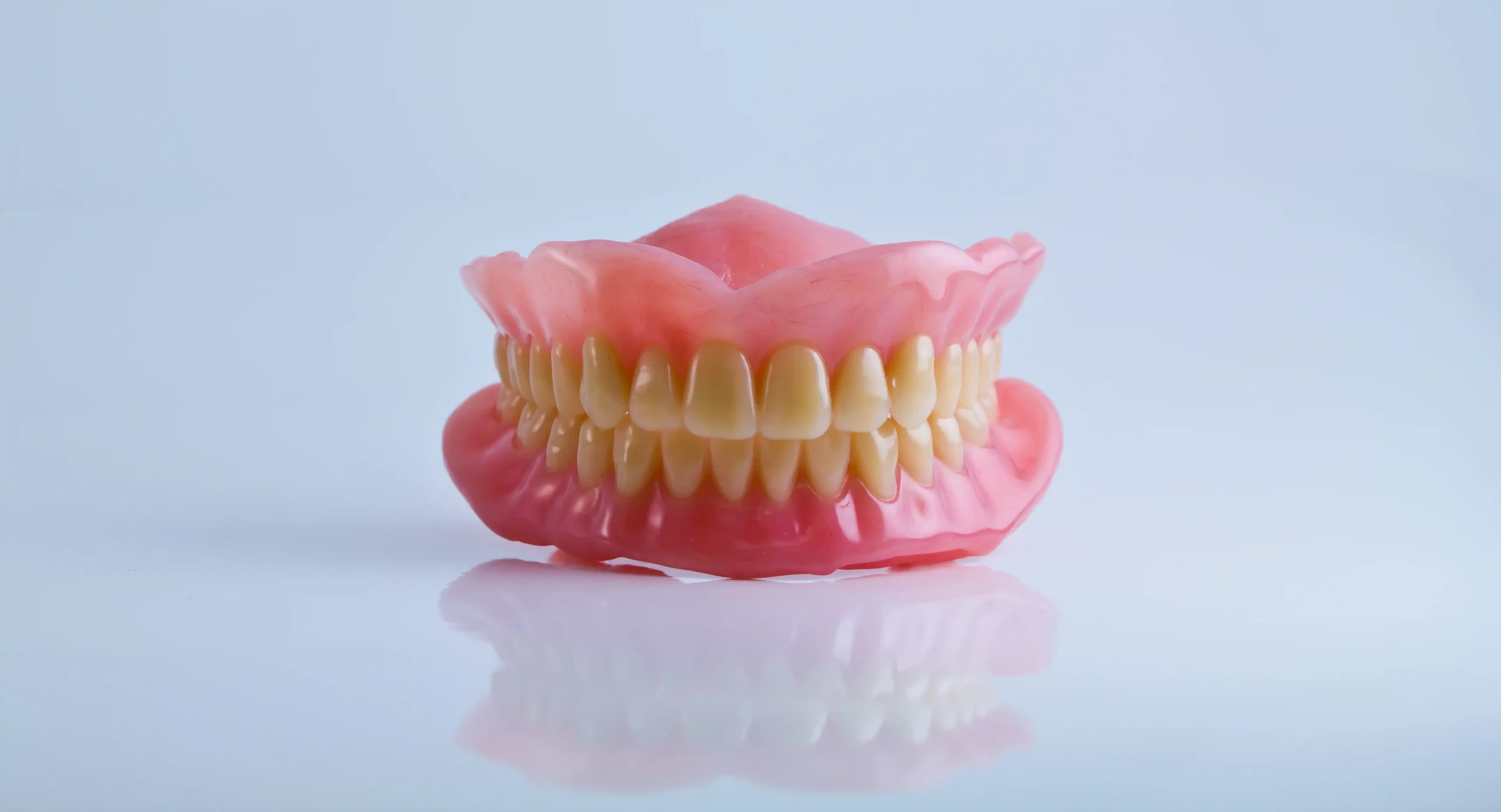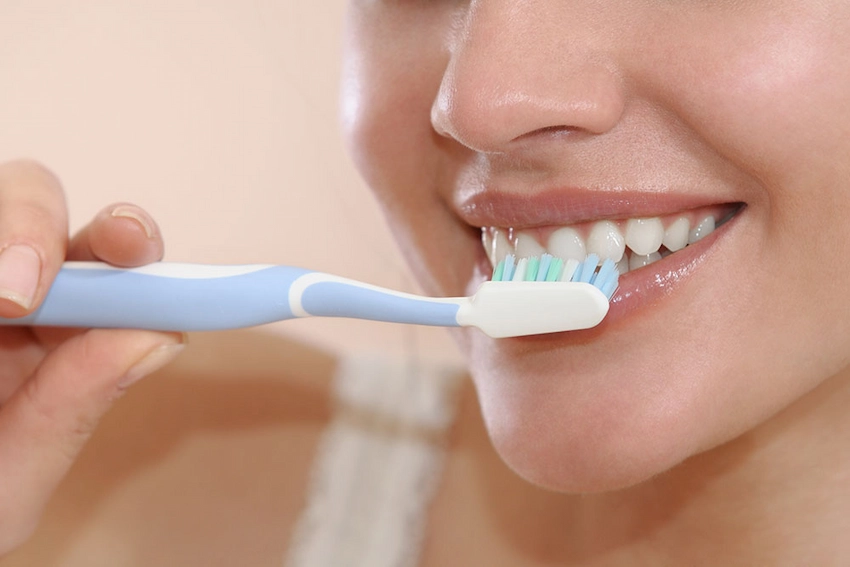Does Baking Soda Whiten Teeth?
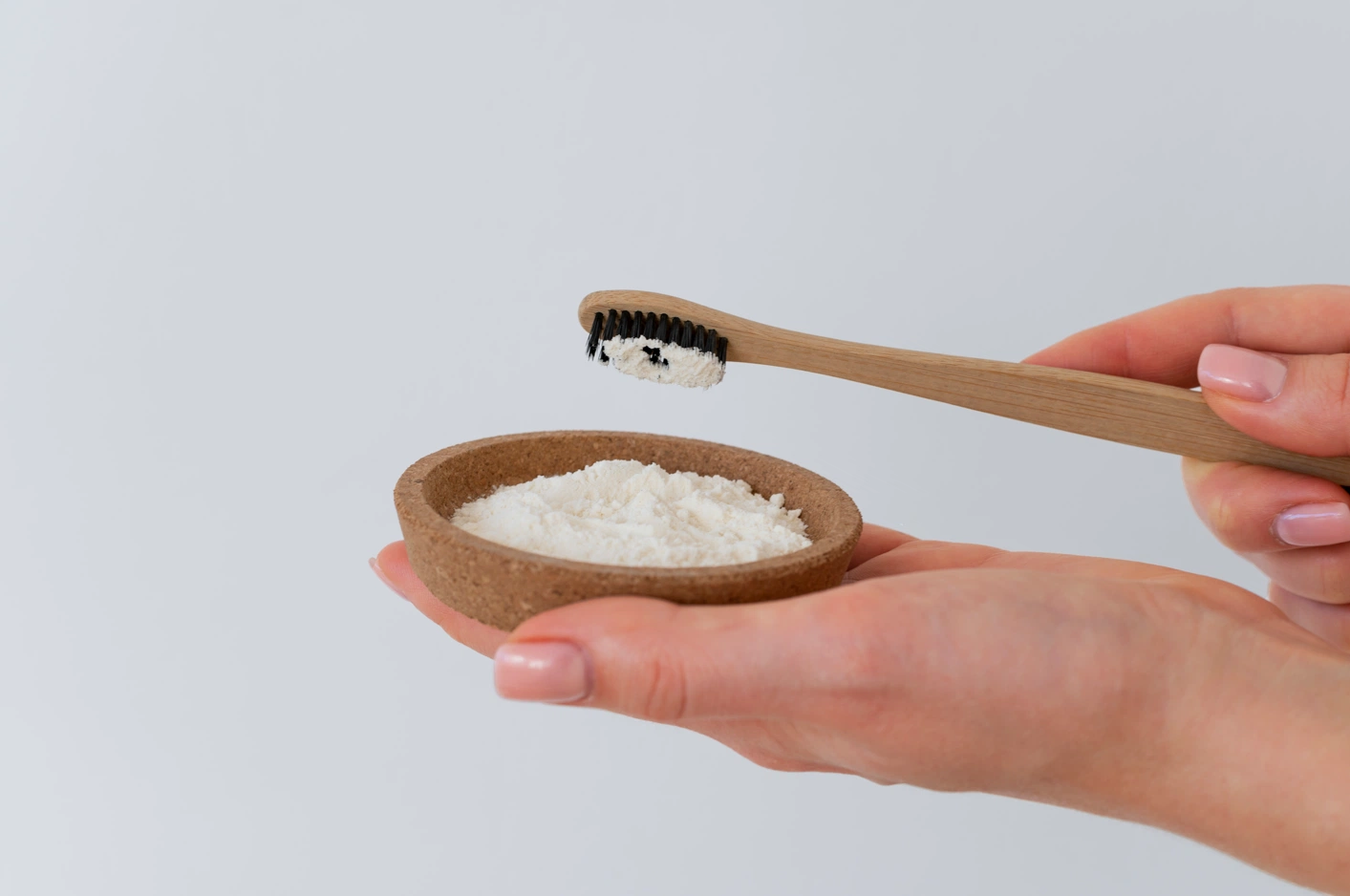
Baking soda. Baking soda or sodium bicarbonate. Soda that you might have found in your kitchen, your bathroom, your fridge, or even your pancakes, and also in your DIY natural beauty recipes. However, one thing that may puzzle you is whether it can be a good choice for whitening your teeth. You want your wisdom teeth to be brighter than before, and you have been thinking about whether baking soda can get the job done or not.
The staff at Lema Dental Clinic in Istanbul handles teeth whitening, dental veneers, and Hollywood Smile transformations daily, and they mostly hear this inquiry from clients seeking an affordable way to brighten their smile. Those who have tried brushing with baking soda are similarly interested, as well as those who have seen viral TikTok videos claiming magical sparks to result from using this cleaning agent. This article is going to clarify if at all, the effect of baking soda on teeth whitening. Is it safe for use? And if it isn’t, then what are the other options? We will be happy to clear your doubts about this hot topic!
Does Bleaching Teeth with Baking Soda Really Work?
We are going to start the discussion scientifically. Baking soda (sodium bicarbonate) is a very gentle abrasive substance. This property makes it possible for this cleaning agent to act as a scrub, which can exfoliate the surface of your teeth that are stained (to be particular, these would be the enamel). Most of those surface stains are the result of consuming things like the pigmented beverages of coffee, tea, smoking, red wine, as well as food in their natural color, which includes turmeric or berries.
Throughout the discussion, baking soda is found to be something that, at first sight, can make your teeth a little bit whiter, but it cannot really bleach them. Bleaching teeth is actually a process of whitening them up to the extent that goes beyond just the surface. A certain set of agents, such as hydrogen peroxide or carbamide peroxide, that are also the main active ingredients of the treatment, like Zoom Whitening or custom trays provided by a doctor, would perform the job.
These chemicals have the capability can make the bonding in stains looser, so the stains are broken apart. With the way it is done nowadays, this is not achievable with baking soda. Baking soda simply removes the dirt that is on the outside of something; it’s unable to clean stains that have penetrated the surface.
Summary: According to the verdict, baking soda can be used as an alternative to real whitening. In case there is a need for more durable, more efficient whiteners, the Lema Dental Clinic has appropriate, strong options that are good for you and your purpose.
Can You Brush Your Teeth Safely with Baking Soda?
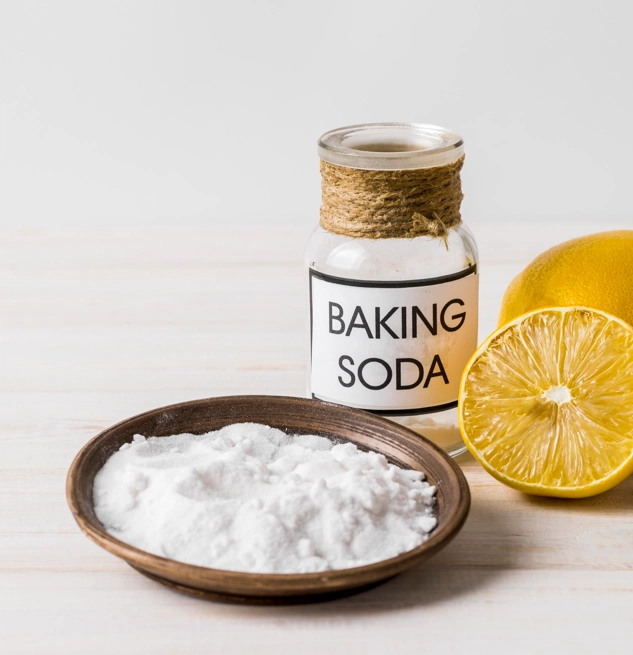
This fact is somewhat confusing. Brushing your teeth with baking soda is safe, but keep in mind that it should not be used excessively. Because it is abrasive, it can cause the enamel to wear away over time when used in the wrong way. Enamel is your tooth’s natural coating, and when it’s gone, there’s no way to grow it back.
Here is how things can get bad after improper use of baking soda:
- Erosion of enamel → Creates tooth sensitivity and leads to discoloration
- Aggravated Gums → The texture of the ingredient is so rough that it can harm the gums.
- Oral restoration damage → Veneers, fillings, and crowns can be subjected to scratch and blunt damage
What are the ways to keep your teeth safe?
- One or two times is enough in a single week, not daily
- Always choose a toothbrush with a soft bristle
- Trying not to press the teeth so hard
- After cleaning your teeth, rinse your mouth with plenty of water
- A type of dental work, such as braces, veneers, or crowns, is something which, if you decide to use you cannot also use baking soda
In case of doubt, contact your dentist, especially when you are having any pain in your teeth or gums.
Is Baking Soda Good for Your Teeth?
Let’s consider the advantages and disadvantages of this.
✅ Pros:
- Mildly Abrasive: Removes stains from the surface of teeth without chemicals
- Antibacterial: Might kill those bacteria that cause the formation of plaque and bad breath
- pH Balancing: Baking soda’s alkaline nature erases acids in our mouth
- Cheap: It is affordable and can be found in almost all stores
❌ Cons:
- Without fluoride: It does not lead to cavity-free teeth
- Too abrasive for some teeth: Continual use of it may erode enamel
- No deep whitening: Only superficial stains can be removed by baking soda
- Bad taste and touch: A large number of individuals are not in favor of the feeling produced by the product (salty and gritty)
Only sometimes and in small amounts, baking soda can be “good,” but it isn’t an all-in-one oral care solution. You may consider it similar to lemon juice in skin care- it does provide some benefits but for achieving the true results, you need to have professional products or treatments.
Can Baking Soda Whiten Teeth?
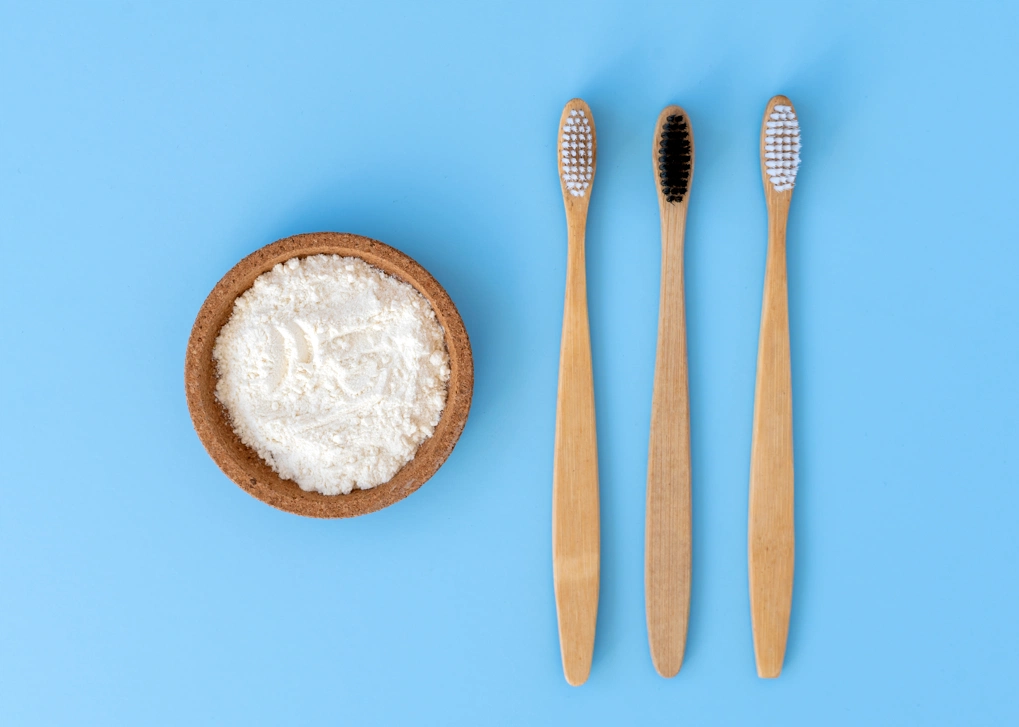
Just like its American cousin, baking soda can only whiten teeth to a small extent–by scrubbing away external stains.
It doesn’t:
- Go through enamel
- Remove deep stains made by tobacco or other chemicals, or environmental causes, e.g. tea, coffee, and wine
- Change the natural color of one’s teeth
- Counteract yellowing caused by aging, medicines, or parents
It’s very important to realize that if you see your teeth as not luminous and a bit dark, the reason must be hidden in the deeper layers of your teeth. The most probable causes are as follows:
- Decreasing, exposing the yellowish beneath the transparent layer of enamel
- Marks made by antibiotics (like tetracycline) taken when patients were still kids
- Color changes caused by cigarettes
- Genetic tooth color that won’t change with scrubbing
In such cases, the most effective solution is not with baking soda but with a professional whitening or very thin shells (veneers) that are used only on the top part of the teeth, both options being available at Lema Dental Clinic.
What Is the Safest Way to Make Teeth White?
If you want a more beautiful smile but want to avoid taking risks, the following recommendations from dentists can help:
1. In-Clinic Professional Whitening
Thanks to in-office whitening, like what is offered at Lema Dental Clinic, one can easily have the peroxide product applied and activated without risking anything. Our whitening system makes it possible to bear the smallest amount of sensitivity, get the fastest possible results, and not compromise the integrity of the enamel and gum tissues.
Chances are that results will be visible after the first treatment.
2. Custom Take-Home Whitening Trays
We can arrange for the clients’ access to such a system whereby the trays are first personalized to match their teeth and then used in conjunction with a mild gel for lightening their teeth. This method is considered quite gradual, and hence it’s safe and greatly noticeable too.
This way of dealing with discolored teeth is perfect for patients who need to set the speed of their whitening venture themselves.
3. Porcelain Veneers or Hollywood Smile
For stubborn stains or long-term whitening, veneers are a game-changer. They cover your natural teeth with thin, durable porcelain shells that are:
- Bright white
- Custom-shaped
- Long-lasting (10–15 years)
- Resistant to coffee, wine, and smoking stains
If you’ve already tried baking soda and strips and didn’t get the results you wanted, veneers or a Hollywood Smile at Lema Dental Clinic might be the ultimate solution. We use artistry, technology, and medical expertise to create and design your perfect smile.
There is no point in trying to change the appearance of the enamel on your own through Do It Yourself activities when the same smile known from your dreams can be here with you in a matter of several days?
FAQs: Baking Soda and Teeth Whitening
Yes, a night and morning application is the best time to use this natural whitening remedy as the solution formed has stain-removing and antibacterial properties, whereas biting can harm your tooth enamel and irritate the gums. It is only for occasional use and caution.
It would be advisable to only use it from time to time, just once or twice a week, as frequent use can lead to loss of enamel and sensitivity.
No. Without fluoride, your teeth will be more vulnerable to cavities and there will be a decrease in enamel protection.
Yes. The abrasive nature of baking soda makes it inappropriate for use in males, females, young, and older people when it comes to their dental work, including but not limited to crowns, veneers, and bonding.
Whitening strips are more risk-free and effective in the profound elimination of the stains, because, unlike baking soda, they contain peroxide.

